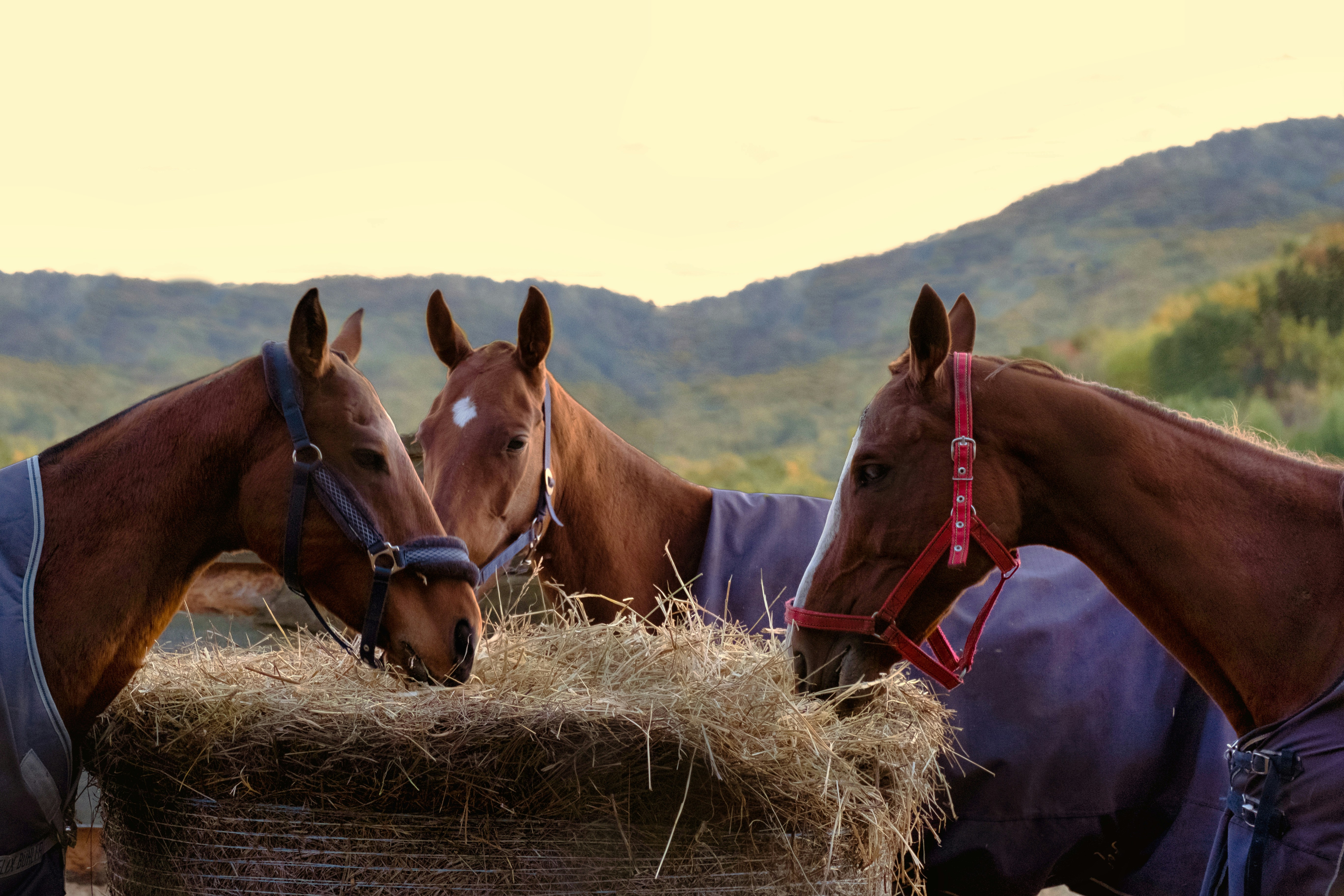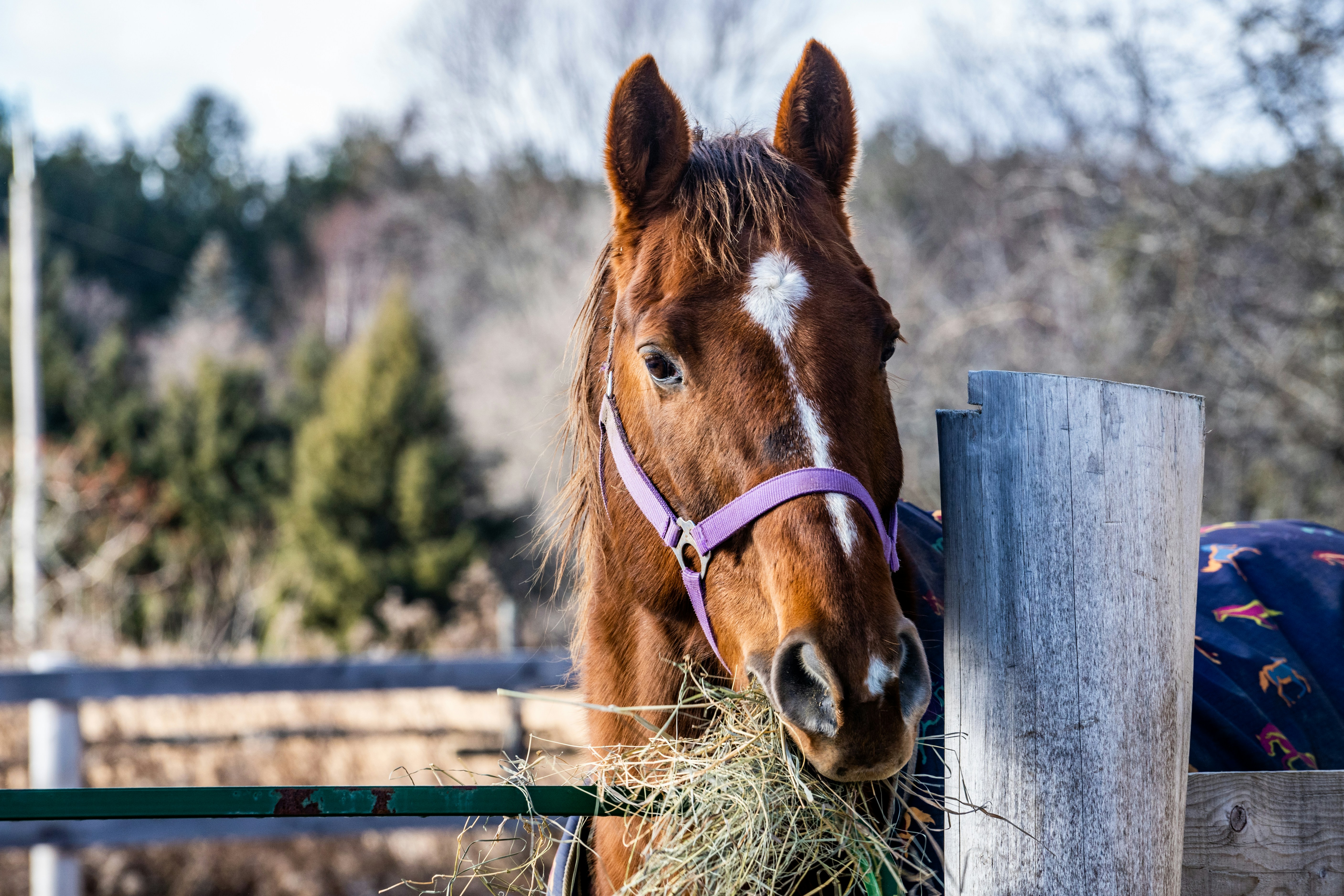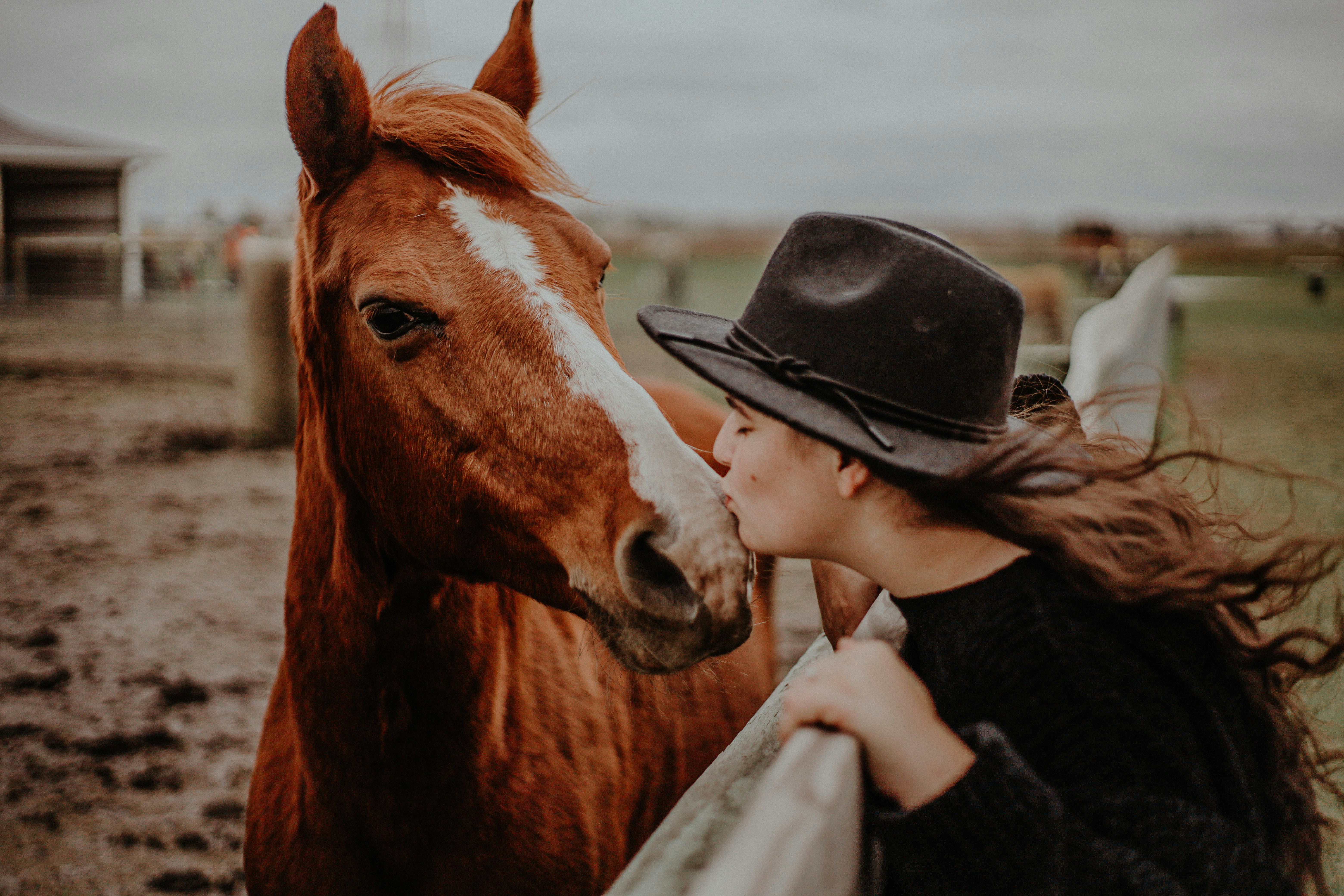
A horse’s diet is one of the most important aspects of its overall health and well-being. Horses are unique in their nutritional needs, with a digestive system designed for consuming large amounts of fiber throughout the day. Proper nutrition helps them maintain their energy levels, supports their growth and development, and can even enhance their performance in various activities such as racing, eventing, and leisure riding. However, not all foods are safe for horses, and some can cause serious health problems. This article will guide you through the essential dietary considerations for horses, highlighting what they can and cannot eat, so you can ensure your horse's diet is both healthy and safe.
1. Understanding the Horse’s Digestive System
Horses are herbivores, and their digestive systems are specially adapted to process large amounts of fibrous plant material. Unlike humans, who have a relatively small stomach compared to our body size, a horse's stomach is relatively small for its size and only holds up to 15 liters of content. However, their cecum and colon act as fermentation chambers where fiber from grass and hay is broken down and absorbed. For this reason, horses require a constant supply of fiber from forage like hay or grass to maintain healthy digestion.
In order to promote digestive health and prevent issues such as colic, horses should be fed small, frequent meals rather than large amounts at once. The main goal is to mimic the natural grazing behavior that horses would exhibit in the wild.
2. Foods That Are Safe for Horses
Horses enjoy a variety of foods, and there are many safe options that you can incorporate into their daily diet. These foods not only provide essential nutrients but also promote good digestion, muscle health, and overall vitality.
2.1. Hay (Timothy, Alfalfa, etc.)
Hay is the primary source of nutrition for most horses. The majority of a horse’s diet should consist of high-quality hay, which is a rich source of fiber. There are different types of hay to choose from, such as timothy hay and alfalfa hay. Timothy hay is ideal for adult horses and provides a balance of fiber and nutrients. Alfalfa hay, on the other hand, is higher in protein and calcium, making it more suitable for younger horses, pregnant mares, or those in heavy work.
2.2. Fresh Grass
If your horse has access to pasture, fresh grass can be a great addition to their diet. Pasture grass is rich in vitamins, minerals, and natural sugars, which provide essential nutrients. However, be cautious about overgrazing or sudden changes in diet, as this can lead to digestive upsets or conditions such as laminitis, a painful inflammation of the hoof.
2.3. Grains (Oats, Barley, etc.)
While horses are primarily forage eaters, grains such as oats, barley, and corn can provide additional energy when needed. These grains are rich in carbohydrates and are often used for horses that are in hard work or training. However, grains should be fed in moderation as they can cause digestive issues, such as colic, if fed in excess. It is important to introduce grains gradually to avoid shocking the horse’s system.
2.4. Fruits (Apples, Carrots, Bananas)
Horses enjoy fruit treats such as apples, carrots, and bananas. These fruits are not only tasty but also provide important vitamins and natural sugars. Apples are particularly popular, but it is important to remove the seeds before offering them to your horse, as apple seeds contain cyanide, which is toxic in large quantities. Fruits should be given in moderation, as excessive sugar intake can lead to weight gain and metabolic issues.
2.5. Vegetables (Lettuce, Spinach)
Certain vegetables, such as lettuce, spinach, and cucumber, can be offered to horses in small quantities. These vegetables are hydrating and provide fiber and vitamins. However, they should never replace hay or other fiber-rich foods. Be cautious with certain vegetables, such as cabbage or broccoli, as they can cause bloating in some horses.

3. Foods to Avoid for Horses
While horses can eat a wide range of foods, there are certain foods that can be toxic or harmful to them. Some of these foods can cause immediate harm, while others may lead to chronic health problems over time.
3.1. Chocolates and Sweets
Chocolate contains theobromine, a substance that is toxic to horses. Even small amounts of chocolate can cause serious problems such as colic, seizures, and even death. Sweets and candies, especially those high in sugar, should also be avoided as they can lead to obesity, insulin resistance, and metabolic disorders.
3.2. Onions and Garlic
Both onions and garlic contain sulfur compounds that can cause digestive problems and damage red blood cells in horses. Chronic ingestion of these foods can lead to anemia and other serious health issues. Even small amounts can be harmful, so it is best to avoid feeding these items to your horse.
3.3. Avocados
Avocados contain a substance called persin, which can be toxic to many animals, including horses. Feeding avocados to horses can cause heart problems, respiratory distress, and even death. It is important to keep avocados and foods that contain avocado (such as guacamole) out of your horse’s reach.
3.4. Potatoes
Potatoes, especially raw ones, contain solanine, a toxic substance that can cause nausea, vomiting, and digestive upset. While cooked potatoes may be safe in small amounts, they should generally be avoided. Horses should not be fed potato peels, as they contain higher concentrations of solanine.
3.5. Dairy Products
Horses are lactose intolerant, meaning they cannot properly digest milk and other dairy products. Feeding your horse milk, cheese, or other dairy items can lead to gastrointestinal upset, including diarrhea and bloating. It is important to keep dairy products away from your horse’s diet.
4. Special Dietary Considerations for Horses
Certain horses may require special dietary adjustments due to health conditions, age, or work requirements. For instance, older horses may find it difficult to chew hay, in which case you can switch to chopped hay or specially formulated senior feeds. Horses with metabolic disorders, such as insulin resistance or Cushing’s disease, may need a low-sugar and low-starch diet.
Horses that are in intense training or competition may need higher amounts of grains or concentrated feed to meet their increased energy needs. Always consult with a veterinarian or equine nutritionist when making significant changes to a horse’s diet.

5. Providing Water
Water is the most important part of a horse’s diet. A horse can survive for weeks without food but only a few days without water. Horses should have access to fresh, clean water at all times. Dehydration can cause severe health issues such as colic, kidney problems, and poor digestion. In hot weather, ensure that your horse drinks enough water to stay hydrated, as they tend to sweat more during physical activity.
Conclusion
Maintaining a healthy and balanced diet for your horse is crucial for its long-term health and performance. By understanding what foods are safe and what foods should be avoided, you can provide the best nutrition for your horse. Always ensure that your horse has access to high-quality forage, fresh water, and appropriate supplements as needed. Consulting with a veterinarian or equine nutritionist will help ensure that your horse’s diet is tailored to meet its unique needs, keeping it strong, healthy, and happy.